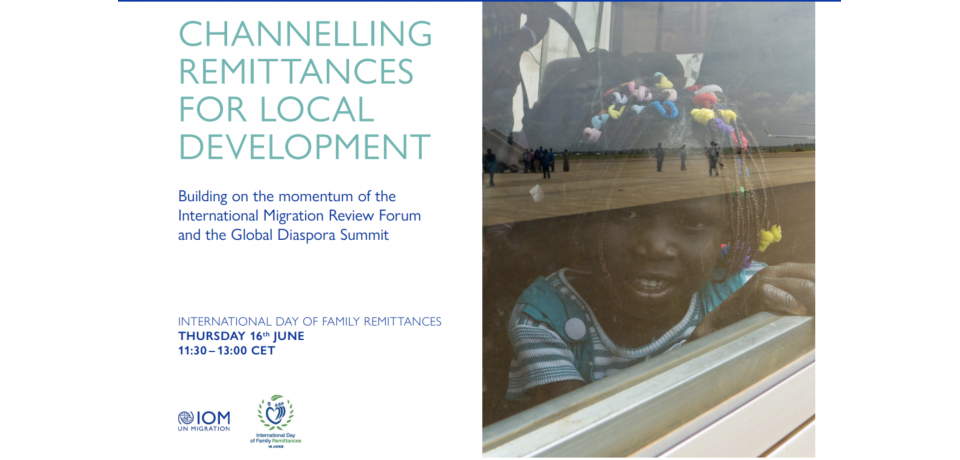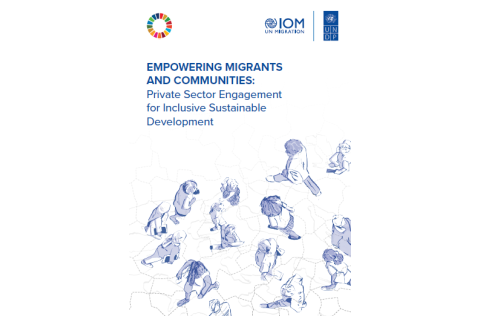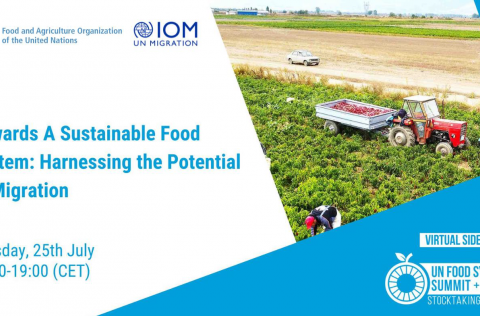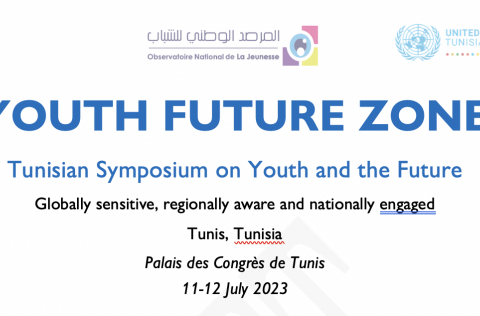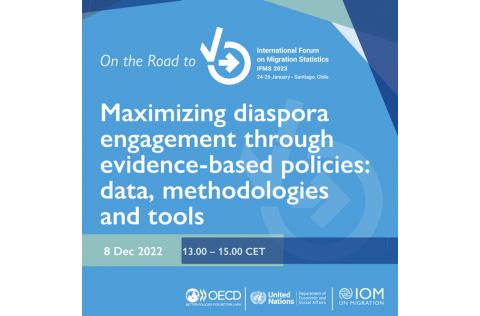Webinar | Channelling Remittances for Local Development
Migrants’ economic contributions to their countries of origin in the form of remittances have been well documented. Latest World Bank data shows that they continued to increase over the past year and are the most significant international financial flow for many low- and middle-income countries. Through the Covid-19 pandemic migrant resourcefulness meant that remittance flows remained resilience providing a crucial lifeline for families and communities back home.
In recognition of the catalytic role that remittances can play in development, the United Nations General Assembly adopted June 16th as the official observation date for the International Day of Family Remittances (IDFR). This is further endorsed by the Global Compact for Safe, Orderly and Regular Migration (GCM), of which IOM is the custodian, which looks to support IDFR under Objective 20’s commitment to promoting remittances contribution to sustainable development.
While much of the public discourse on Objective 20 is of providing fast, cheaper and safer remittances, its commitment to the financial inclusion of migrants is sometimes overlooked. While recognizing that remittances are an important source of private capital, article (g) of Objective 20 for instance calls on signatories to ‘[d]evelop programmes and instruments to promote investments from remittance senders in local development and entrepreneurship in countries of origin... in order to enhance the transformative potential of remittances beyond the individual household’.
Thus, if supported in the right way, remittances can also be a springboard for local investment and development. This potential is further recognized in Objective 19 of the Global Compact for Safe, Orderly and Regular Migration (GCM) which has more of a macro focus and asks of its signatories to create the conditions for migrants and diasporas to fully contribute to sustainable development in all countries by engaging with diaspora and leveraging such mechanisms as diaspora bonds, investment funds and capital matching to facilitate diaspora investment and entrepreneurship.
While we must be mindful of the Compact’s commitment to protecting remittances as a private source of capital, that private capital can be converted to private investment.
While IOM studies show that up to 70% of remittances are used for consumption purposes, this still leaves 30%, or up to $190bn by latest calculations1, that might be leveraged for private and local investment and development purposes. This requires that migrants and their families are financially and digitally included, have access to tailored financial products and services and are engaged through appropriate channels and platforms.
Building on the momentum of the recent International Migration Review Forum (IMRF) in New York and the Global Diaspora Summit in Dublin (and the subsequent Progress and Dublin Declaration), IOM will be hosting a brief policy debate via webinar to mark the occasion of the International Day of Family Remittances on June 16th, 2022. The webinar will convene a group of policy makers and experts to determine how migrants and their economic capital, such as remittances, can be engaged for local investment and entrepreneurship such that migrants can become actors for sustainable development. In it we will hear of the different types of diaspora investment remittances can unlock, the policies that need to be in place to facilitate that, learn of the direct experiences of member states and partners, and also understand crucial role that diaspora engagement and trust plays.
AGENDA
Timing
Thursday 16th June 11:30 – 13:00 CET
Opening Remarks
António Vitorino
Director General, IOM
Moderator
Killian Clifford
Senior Advisor, Migrant Financial and Economic Empowerment, IOM
Discussion Framing
Stephen Gelb
Principal Research Fellow, Overseas Development Institute
Panel Discussants
• Jorge Santos
Minister for Communities, Cabo Verde
• Kingsley Aikins
CEO of The Networking Institute
• Eiman Kheir
Diaspora Policy Manager, Meta
